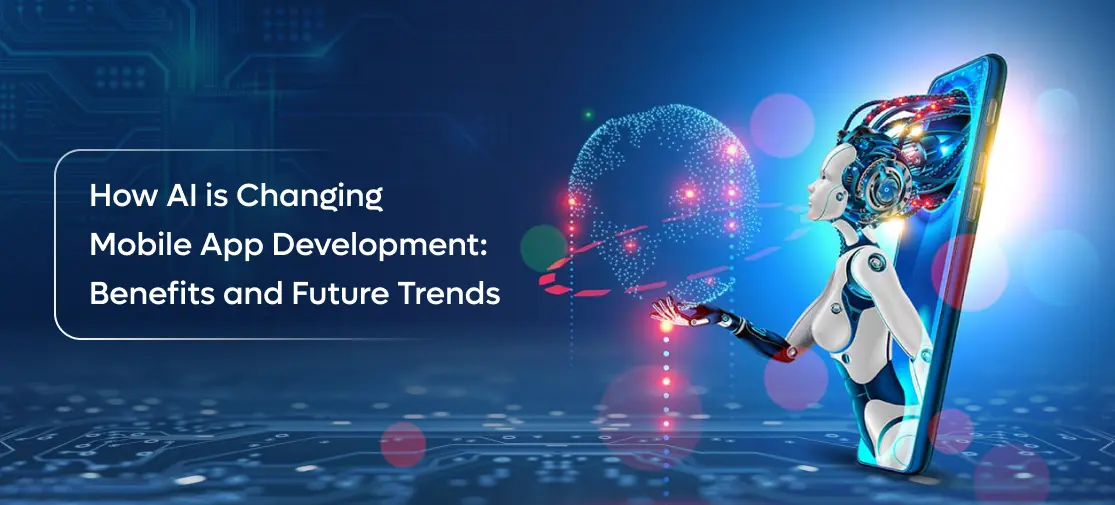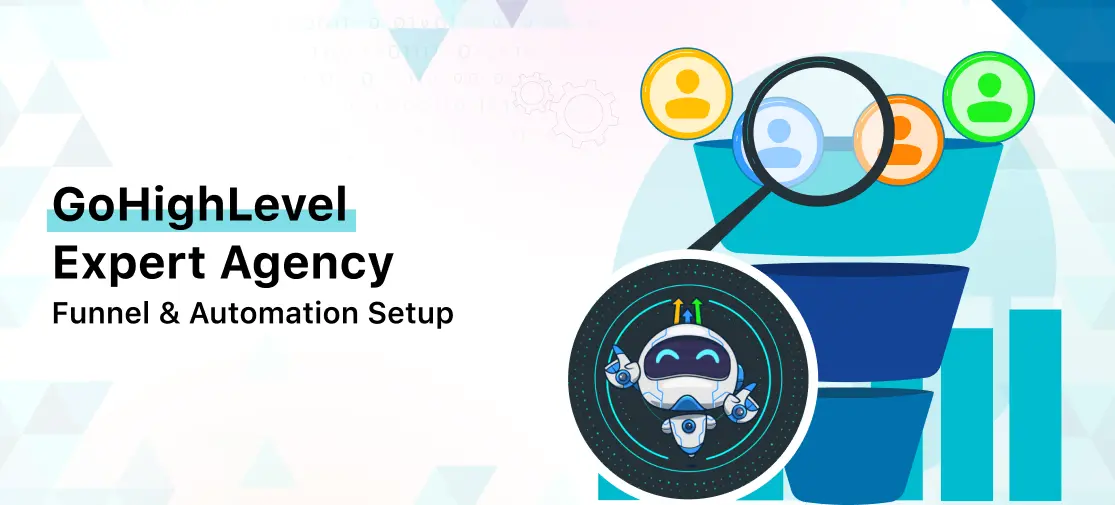Introduction
Artificial Intelligence (AI) has emerged as a powerful force driving innovation and change across various industries in recent years. One area where AI is making significant strides is mobile app development. From streamlining development processes to enhancing user experiences, AI plays a crucial role in reshaping the landscape of mobile applications. In this comprehensive blog, we will explore the benefits of AI in mobile app development, delve into future trends, and examine how businesses and developers can harness its potential for success.
AI in Mobile App Development
AI refers to the simulation of human intelligence in machines that are programmed to think, learn, and problem-solve. In mobile app development, AI encompasses various technologies, including machine learning, natural language processing, and computer vision. These technologies empower developers to create smarter, more efficient, and user-friendly applications.
Benefits of AI in Mobile App Development
1. Enhanced Personalization
One of the most significant benefits of AI in mobile app development is its ability to provide personalized user experiences. AI algorithms analyze user behavior, preferences, and interactions to deliver tailored content and recommendations. For instance, AI-driven recommendation systems in apps like Netflix and Spotify curate content based on individual user tastes, improving user engagement and satisfaction.
2. Improved User Engagement
AI enhances user engagement by enabling features such as chatbots and virtual assistants. These AI-powered tools provide instant assistance, answer queries, and perform tasks, making interactions seamless and efficient. With AI, apps can offer real-time, context-aware responses, significantly boosting user satisfaction and retention.
3. Efficient App Development
AI technologies streamline app development processes through automation and optimization. AI-powered tools can automatically generate code snippets, perform testing, and identify bugs, saving developers valuable time and resources. Automated testing frameworks, powered by AI, can simulate a wide range of scenarios, ensuring app reliability and robustness.
4. Advanced Data Analytics
AI-driven analytics provide developers with valuable insights into user behavior, app performance, and market trends. By analyzing vast amounts of data, AI algorithms can uncover patterns and predictive insights, helping developers make data-driven decisions and optimize app features. This leads to more informed updates and improvements, aligning apps more closely with user needs.
5. Enhanced Security
Security is a paramount concern in mobile app development. AI fortifies app security by detecting and mitigating threats in real-time. Machine learning algorithms can analyze user behavior to identify anomalies, detect fraudulent activities, and provide recommendations for strengthening app security measures. This proactive approach minimizes vulnerabilities and protects user data.
6. Natural Language Processing (NLP) and Voice Recognition
NLP and voice recognition are key AI technologies transforming mobile apps. These capabilities allow apps to understand and respond to human language, enabling voice commands, text-to-speech features, and language translation. Virtual assistants like Siri and Google Assistant utilize NLP and voice recognition to enhance user interaction and accessibility.
Future Trends in AI-Powered Mobile App Development
1. Integration of AI and IoT
The Internet of Things (IoT) is revolutionizing how devices interact and communicate. Combining AI with IoT creates smarter ecosystems where devices collaboratively process data and make intelligent decisions. In mobile app development, this integration will lead to innovations in areas such as smart homes, healthcare, and wearables, offering users more intelligent and interconnected experiences.
2. Augmented Reality (AR) and Virtual Reality (VR) with AI
AI is set to enhance AR and VR experiences within mobile apps. By leveraging AI, developers can create immersive environments with advanced object recognition, real-time translation, and adaptive content. This synergy will benefit industries like gaming, education, and retail, where users can experience hyper-personalized, interactive, and dynamic content.
3. AI-Enabled Predictive Analytics
AI will further enhance predictive analytics in mobile apps, empowering businesses to anticipate user needs, optimize resources, and improve decision-making. Predictive models driven by AI will enable apps to offer proactive recommendations, optimize marketing strategies, and enhance operational efficiency.
4. Edge AI for Mobile Apps
Edge AI allows AI computations to occur on devices rather than relying on cloud servers. This trend is crucial for mobile apps, as it ensures data privacy, reduces latency, and improves real-time processing capabilities. Edge AI is gaining traction, especially in applications requiring immediate insights, such as real-time translation and autonomous vehicles.
5. AI for Accessibility and Inclusivity
AI has the potential to make mobile apps more accessible and inclusive for individuals with disabilities. Features such as real-time sign language interpretation, voice-guided navigation, and adaptable interfaces will empower a broader audience to benefit from technology. Developers will increasingly prioritize inclusivity, leveraging AI to create apps that cater to diverse user needs.
Unique AI-Driven Mobile App Features
1. Emotion Recognition
Emotion recognition is an emerging feature driven by AI that allows apps to perceive and respond to users' emotional states. By analyzing facial expressions, voice tone, and text cues, apps can adapt their responses to match the user's mood. This capability is particularly promising for mental health apps and customer service applications.
2. Real-Time Language Translation
Advancements in AI-driven language processing facilitate real-time translation within apps, breaking down language barriers in communication. Language translation apps and travel platforms are increasingly using AI to provide seamless multilingual interactions, enhancing global connectivity and user experience.
3. Automated Content Creation
AI can automate content creation for mobile apps, generating articles, product descriptions, and social media posts. Natural Language Generation (NLG) algorithms can produce human-like text, allowing businesses to maintain consistent communication with users, support marketing efforts, and increase productivity.
4. Smart Surveillance and Facial Recognition
AI-driven facial recognition and smart surveillance features are revolutionizing industries like security and finance. Mobile apps can use AI to verify user identities, authenticate transactions, and provide secure access to sensitive information. This technology enhances security measures while ensuring user convenience.
Challenges in AI-Powered Mobile App Development
While the benefits of AI in mobile app development are vast, several challenges must be addressed:
- Data Privacy and Security : AI relies on vast amounts of data, raising concerns about privacy and protection. Developers must prioritize strong security measures to safeguard user information.
- Bias and Fairness : AI algorithms can inadvertently perpetuate biases present in training data. Developers must strive for fairness and transparency to ensure equitable user experiences.
- Resource Intensive : AI technologies can be resource-intensive, requiring significant computing power and energy. Optimizing AI models for efficiency ensures smooth app performance and battery conservation.
- Interdisciplinary Skills : Developing AI-driven mobile apps requires expertise in both AI and mobile development. Businesses must invest in skilled professionals and continuous learning to leverage AI effectively.
Conclusion
The integration of AI in mobile app development marks a transformative shift in how applications are designed, developed, and delivered. As AI continues to evolve, mobile apps will become more intelligent, user-centric, and capable of delivering exceptional experiences. By embracing AI technologies, developers can unlock new opportunities, drive innovation, and meet the ever-growing expectations of users. As we look to the future, the potential of AI in mobile app development is boundless, promising a world where technology seamlessly delights and empowers users across the globe.



